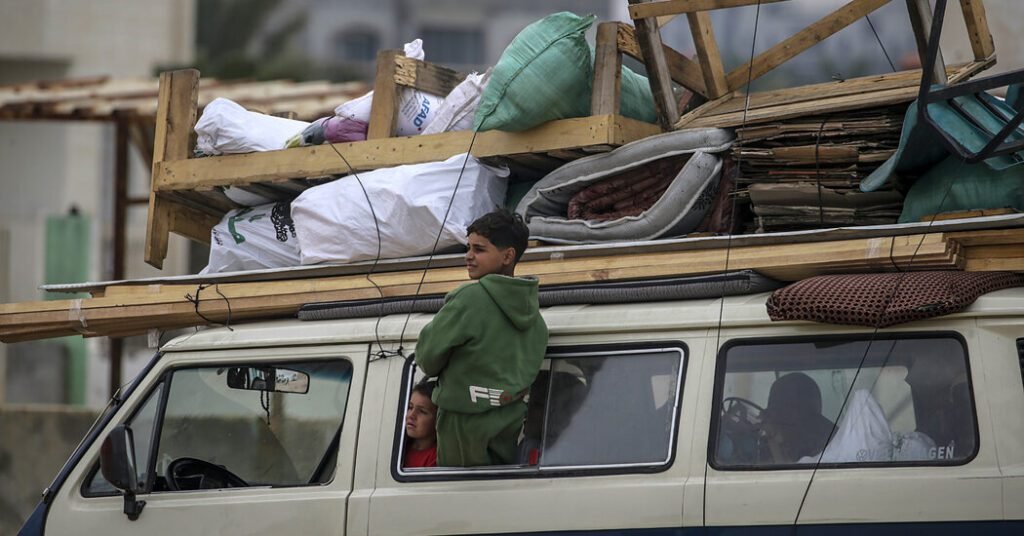President Biden said Monday that Israel should not launch a major ground assault on the southern Gaza city of Rafah without a “credible plan” to protect the more than a million people there.
Mr. Biden spoke after meeting at the White House with King Abdullah II of Jordan, a key figure in the Gaza ceasefire effort. It was the first face-to-face conversation between the two leaders since the Israel-Hamas war began.
“A lot of people there have been displaced — displaced multiple times, fleeing the violence in the north, and now they’re piled up in Rafah, exposed and vulnerable,” Mr. Biden said during an appearance with King Abdullah. “They need to be protected.”
The visit came as King Abdullah sought to drum up international support for an immediate ceasefire in Gaza that would end the fighting for good.
Mr Biden has rejected the idea of a blanket ceasefire, saying Israel has a right to defend itself. But he has pushed for a pause in the fighting that could allow the release of hostages held by Hamas and something “more lasting.”
Much of Jordan’s population is ethnically Palestinian, putting the country – a close US ally that has a peace treaty with Israel – in a difficult position as it deals with the aftermath of the war.
King Abdullah said an Israeli invasion of Rafah was “certain to cause another humanitarian disaster”.
“The situation is already unbearable for over a million people who have been pushed into Rafah since the start of the war,” King Abdullah said. “We cannot stand by and let this continue. We need a lasting ceasefire now. This war must end.”
Mr Biden issued strong condemnation of the rising death toll in Gaza, where health officials say more than 28,000 people have been killed since the war began.
“It’s heartbreaking,” Mr. Biden said of the deaths. “Every innocent life in Gaza is a tragedy.”
While Mr. Biden’s criticism of the war has grown harsher in the four months since the Oct. 7 attack, the United States has not signaled that it plans major policy changes, such as placing conditions on military aid to Israel.
On Monday, when asked whether Israel would face any consequences for how it proceeds with its next military campaign, John F. Kirby, the White House spokesman, said he was not going to get into “what ifs.”
He said the United States was working to influence the way Israel conducted its war.
“There have been times and there continue to be times when we have the opportunity and we took the opportunity to shape their thinking and help influence the way they ran some of these businesses,” he said. “And that remains today.”
Both Mr Biden and King Abdullah have said the conflict must end with a two-state solution.
“I say this as a long-time, lifelong supporter of Israel,” Mr. Biden said. “This is the only path that guarantees Israel’s security in the long term.”
King Abdullah said “this is the only solution that will guarantee peace and security for Palestinians and Israelis, as well as for the entire region.”
Egypt and Qatar, acting as intermediaries between Israel and Hamas, have led talks aimed at ending the conflict and freeing hostages held in Gaza. The Biden administration has been actively involved in these negotiations, working publicly and behind the scenes to try to advance a ceasefire agreement.
On Monday, Mr. Biden said the United States was working on a hostage deal with Israel and Hamas that could bring about a pause of at least six weeks that could “take time to build something more lasting.”
CIA Director William J. Burns was expected to travel to Cairo for hostage talks on Tuesday, according to a US official who spoke on condition of anonymity about the discussions.
While Israeli Prime Minister Benjamin Netanyahu publicly rejected a Hamas proposal last week, Israeli officials have signaled that their government is still open to negotiations. The mere fact that more talks will take place in Cairo this week is seen as a positive sign.

